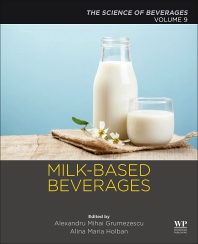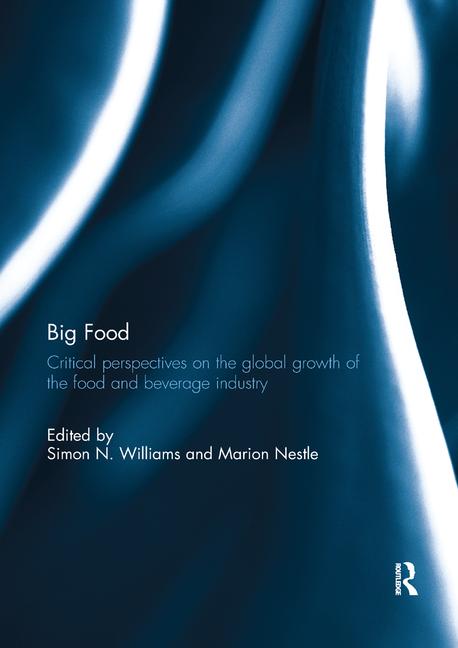Spirits community rallies to help address hand sanitizer shortage
Global, craft distillers shift production to hand cleaner

As Americans’ concerns about contracting the novel coronavirus, now named COVID-19, grew, many shoppers flocked to stores to stock up on various consumer packaged goods (CPGs). Among the early products that mainstream news outlets were reporting as the most popular items were bottled water, toilet paper and hand sanitizer. However, as the rush to stockpile on the hand cleaner product proliferated, it left many stores with empty shelves for future shoppers.
Manufacturers of hand sanitizers are working to address the shortage, but as hospitals, first responders, police officers, firefighters and more are working through the pandemic, the need for the personal hand cleaner has become an urgent need. Thankfully, the spirits community has recognized this need; and with guidelines from the World Health Organization (WHO) and exemptions and authorizations granted by the Alcohol and Tobacco Tax and Trade Bureau (TTB), many spirits-makers are helping to manufacture ethanol-based hand sanitizer.
The Washington, D.C.-based Distilled Spirits Council of the United States (DISCUS) and members of its Technical Committee have been working with the Tax and Trade Bureau to clear regulatory hurdles and expedite federal guidance for distillers on the production of hand sanitizer. TTB has eased regulations so that a distillery will not need a special permit to produce hand sanitizer as long as it holds a beverage producers permit, it says. Additionally, TTB will allow the production without formula approval as long as distilleries follow the WHO formula for hand sanitizer, which includes grain neutral spirits, glycerin and hydrogen peroxide, the association adds.
The following are some of the distillers that have announced they are utilizing their facilities to produce hand sanitizer:
- New York-based Pernod Ricard USA announced that it will produce and donate hand sanitizer to help in the national fight against the COVID-19 virus. The hand sanitizer will be produced at all of Pernod Ricard USA‘s manufacturing sites, including facilities in Fort Smith, Ark.; Smooth Ambler Spirits, Lewisburg, W.V.; Rabbit Hole Distillery, Louisville, Ky.; and TX Whiskey Distillery, Ft. Worth, Texas.
- Hamilton, Bermuda-based Bacardi Ltd. Announced a shift in products at the its Cataño, Puerto Rico-based premium rum distillery to help supply ethanol required to produce the much needed hand sanitizers that are in high demand as a result of COVID-19. The Bacardi Corp. distillery has partnered with Puerto Rico-based manufacturer Olein Refinery to provide raw materials that will enable the production of more than 1.7 million units of 10-ounce hand sanitizer.
- Fort Worth, Texas-based Blackland Distillery, a full-service cocktail lounge, tasting room and spirits distillery, announced that it is using its production facility to create hand sanitizer for the community in connection with the growing concerns about COVID-19 and limited health and safety products. Blackland will donate as much hand sanitizer as possible to local hospitals, medical communities and shelters in need, it says.
- Hotel Tango Distillery, Indianapolis, is temporarily adding a new high-proof ethyl alcohol-based product to its line of craft spirits that can be used as hand cleaner, due to the worldwide shortage of sanitizers caused by the rapid spread of COVID-19. Hotel Tango will be donating the entire first batch of the cleaner to local Indianapolis and Fort Wayne shelters, with hopes of eventually shipping the product to military bases overseas in affected countries and possibly selling bottles at their two tasting rooms, if deemed necessary.
- J. Rieger & Co., Kansas City, Mo., has joined the coronavirus fight. The craft distiller is stepping up to help combat the hand sanitizer shortage by producing its own alcohol-based solution. J. Rieger & Co. will be packaging the hand sanitizer in small bottles, available for pick-up only from the distillery. To continue to provide responsible solutions and a steady income for its team, the hand sanitizer will be available on a pay-what-you-can scale.
- Like many distilleries, Montpelier, Vt.-based Caledonia Spirits has had to temporarily shutter its on-site bar and retail stores in the wake of the COVID-19 pandemic. Yet, the craft distillery is trying to do what it can to contribute to what is now a global fight against the spread of the disease. As a result, the craft distillery added a very different item to its production line: hand sanitizer. With the raw materials needed to make hand sanitizer, the distiller team has started producing hand sanitizer for local nonprofit organizations including the Vermont Foodbank.
- In light of recent events with the fast spread of COVID-19, British Columbia-based Victoria Distillers, home of Empress 1908 Gin, has team up with local company Nezza Naturals, to create a free, not-for-profit hand sanitizer with essential oils and the alcohol that is leftover from each distillation. Victoria Distillers supplied Nezza Naturals with alcohol which was at 90 percent. The alcohol was blened with a little water, vegetable glycerin and sweet orange essential oil resulting in a finished hand sanitizer that contains 70 percent alcohol, higher than the standard 60 percent of other hand sanitizers, it says.
- Oahu, Hawaii-based KO‘OLAU Distillery, makers of Old Pali Road Whiskey, announced it is shifting production to begin supplying hand sanitizer for critical services. The distillery has the capability to legally distill alcohol and will shift production toward producing the base for hand sanitizer that will be provided free of charge to first responders, health workers and essential civil service personnel, it says.
DISCUS continues to work with Congress and the Trump Administration to ease tax regulations that could force distillers producing hand sanitizer to pay federal excise taxes on the alcohol used, it says.
The Tax and Trade Bureau (TTB) eased regulations to permit distillers to make hand sanitizer, but were unable waive the federal excise tax for distillers using undenatured ethanol. Under the new TTB guidance, “Hand sanitizer products are not subject to Federal excise tax if made with denatured ethanol. However, if made with undenatured ethanol, Federal excise tax applies.”
DISCUS has asked Congress to make an emergency fix in upcoming COVID-19 relief legislation so that distillers can use the ethanol they have on hand — denatured or undenatured — to quickly make the hand sanitizer without having to expend additional resources and time.
“We want to thank our regulator partners at the Tax and Trade Bureau for working with us to cut through the red tape so we can quickly help fill this need in our country,” said Chris Swonger, chief executive officer of DISCUS, in a statement. “We appreciate Congress’ efforts to work with us and the Tax and Trade Bureau to make this important change regarding the federal excise tax and hand sanitizer production. The distilled spirits industry is already facing difficult times with tariffs and the shutdown of bars and restaurants. Distillers are members of the community and want to help, but forcing them to pay taxes on the hand sanitizer is just plain wrong.”
Looking for a reprint of this article?
From high-res PDFs to custom plaques, order your copy today!







